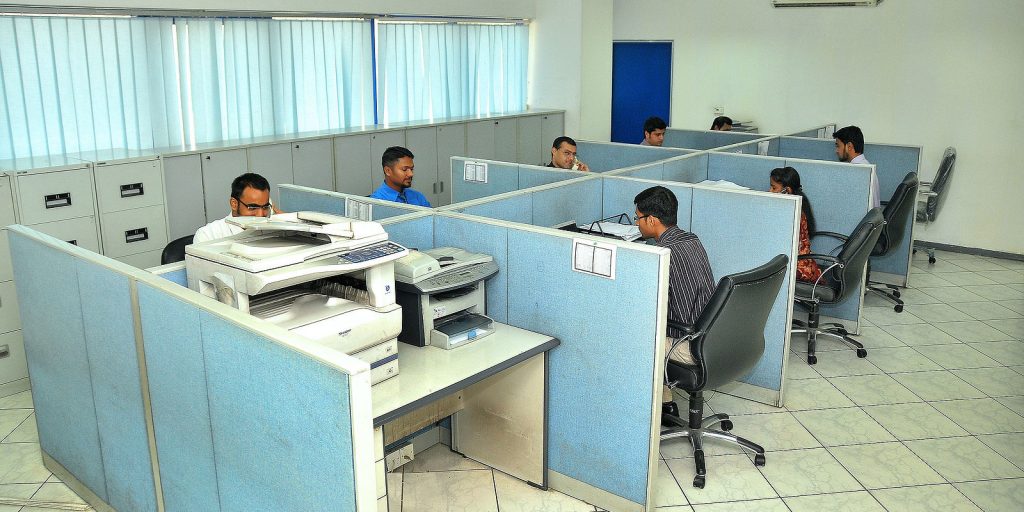Socially responsible and environmentally sustainable purchasing
 Alicia Culver, executive director of the Responsible Purchasing Network (RPN), says the need to buy climate-friendly products and services is becoming more compelling. Climate-friendly items include renewable energy, fuel-efficient fleets, energy-efficient lighting equipment, appliances and office electronics and plant-based foods.
Alicia Culver, executive director of the Responsible Purchasing Network (RPN), says the need to buy climate-friendly products and services is becoming more compelling. Climate-friendly items include renewable energy, fuel-efficient fleets, energy-efficient lighting equipment, appliances and office electronics and plant-based foods.
RPN is an international network of buyers dedicated to socially responsible and environmentally sustainable purchasing. The group’s membership program and consulting services provide institutional purchasers with procurement tools and resources that can help save money, conserve resources, reduce waste and improve efficiency.
Local governments around the country that are members of the Urban Sustainability Directors Network (USDN) have been collaborating with RPN in several ways. Local entities and RPN have been working to collectively produce tools that will help government sustainability teams build and implement an effective sustainable purchasing program. In 2015-2016, for instance, RPN and USDN developed a Sustainable Procurement Playbook for Cities.
Culver says more local governments are targeting their sustainable procurement actions to support their Climate Action Plan (CAP) goals and key performance indicators. She notes a few local entities (e.g., Alameda County, Calif., and King County, Wash.), have developed greenhouse gas (GHG) emissions inventories of their municipal operations (separate from their community-wide GHG inventories). Cities are using this information to rank the importance of their high-impact sustainable purchasing initiatives. Boulder, Colo., for instance has a web-based comprehensive community GHG inventory while Toronto, Canada has a detailed inventory.
The federal government, Culver says, is reducing its role and stepping back from being a leader in sustainable purchasing – and environmental protection in general. She says more cities and counties are stepping up to adopt new sustainable purchasing policies or to expand their sustainable purchasing programs. Ann Arbor, Mich.; Austin, Texas; Portland, Ore., and Santa Monica, Calif. adopted new or updated sustainable purchasing policies in 2018. Boston’s Good Food Purchasing Program, approved by the city’s legislative body in March, supports producers that employ sustainable production systems. The program affects public food purchasers, the largest of which is the Boston Public Schools.
Procurement officials in many local governments tell RPN that they are having trouble keeping up with their workloads. This can be a challenge when they are tasked with adding sustainable purchasing initiatives in their departments, Culver says. “It is very important for local governments to look for opportunities to make sustainable purchasing easier by developing specifications in advance and by using state and local government contracts and other cooperative price agreements.” She suggests that environmental sustainability departments work directly with the agencies that most often use each sustainable product category. This may help speed the development of specifications prior to the bid package going to the procurement department.
New web offerings can help local governments speed the process of identifying and specifying sustainable goods and services, Culver says. These tools include model specifications, databases that aggregate lists of certified green products and calculators that can enable buyers to quickly track the environmental and economic benefits of buying sustainable goods and services.
One example is a series of Green Purchasing Easy Guides that Santa Monica, Calif. city officials developed and produced. The guides include a variety of product and service categories including, but not limited to: cleaning chemicals, computer equipment, multi-function imaging equipment, copy paper, construction adhesives, and more. RPN provided technical support in developing the guides.
Some governments have introduced “all-green” contracts to encourage more sustainable buys, Culver says. “For example, some cities have developed contracts for 100 percent recycled-content copy paper, electric vehicles or LED lighting equipment in order to negotiate deep discounts on those items.”
Michael Keating is senior editor for American City & County and the GPN web site. Contact: [email protected]




















